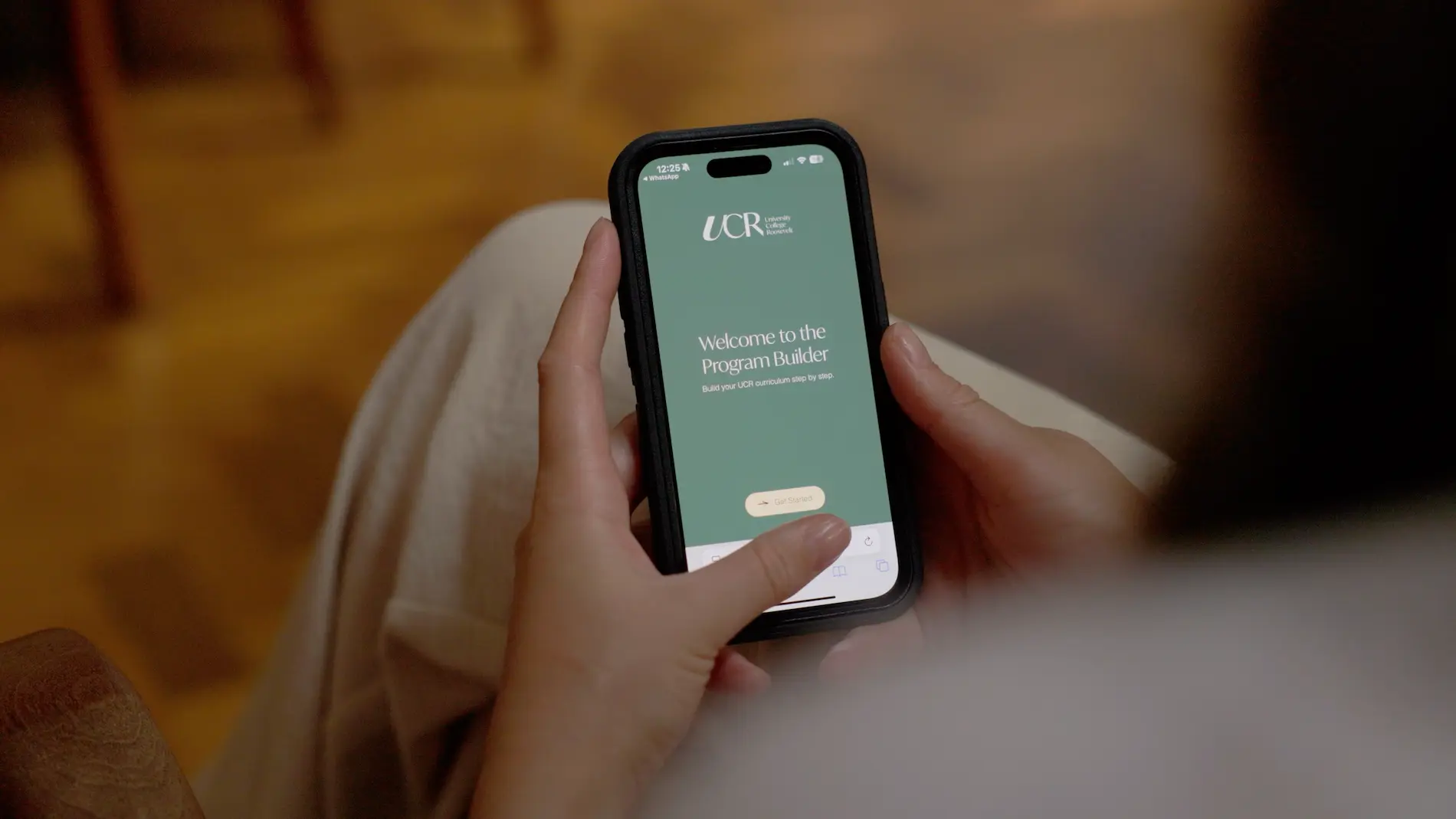14
Mar 2026
View
Design your own Bachelor’s program based on your interests and talents

A Liberal Arts & Sciences Bachelor program allows you to design your own curriculum by choosing courses from different academic fields. You may combine, for example, psychology, philosophy, and biology in one program.
The UCR Program Builder is designed to help you easily plan your academic program. Step by step, the tool guides you through selecting courses, building a balanced curriculum, and meeting UCR’s academic requirements.

The UCR Program Builder is designed to help you easily plan your academic program. Step by step, the tool guides you through selecting courses, building a balanced curriculum, and meeting UCR’s academic requirements.